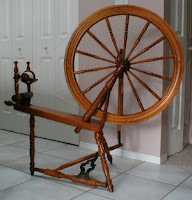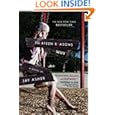
Over the past year or two, as regular readers of this blog may have noticed, many members (current and former) of this critique group have hit the writer’s jackpot.
*Four members landed agents.
*One member’s picture book debuted this spring.
*One member sold a middle-grade novel, which hits bookstores in August.
*One member sold a picture book.
*Another member sold some magazine articles, adding to her already thick stack of clips.
This is, of course, in addition to children’s books and articles this group’s members have published in the past.
And then there’s me.
Over the past year or two, while most of my critique buddies racked up publishing successes, my own writing came to a complete standstill. To help make ends meet, I went back to work as a writing professor, and my own WIPs gathered dust on a shelf. Luckily, I was able to take the summer off. So I now have a few precious months to write, revise, submit, and critique before school starts again in the fall.
As happy as I am for my critique buddies, I can’t help but envy them. (You sold another book? Isn’t that nice for you?) It feels like everyone’s getting invited to the party but me. I’m still hopelessly pre-pubbed, and feeling like the writerly equivalent of a wallflower. (In the interest of stoking what’s left of my ego, may I add that I’ve published plenty of magazine articles for grown-ups? Of course, in the world of children’s books, it doesn’t count, but thanks for letting me tell you anyway.)
I envy my critique buddies’ newly minted status as agented writers and their lovely new publishing credits. I envy their conversations with agents and editors. I envy their royalty checks, however small. I envy their beautifully designed and illustrated books and magazine pieces. Finally, I envy the time they’re able to devote to their craft, which I used to have, too, but don’t anymore.
Still, I remain hopeful, that this will change one day. That I’ll get the call, too. Sell the book. Cross over to the other side, from pre-pubbed to pubbed. Hey, guys, I made it, wait up!
In the meantime, while I remain in pre-pubbed purgatory, I have a question for our followers (stealth readers and Paper Waiters can chime in, too, of course). From your bios, websites, and blogs, I see that many of you have seen your fair share of publishing successes too. (Isn’t that nice for you? Wink.) So, tell me, were you ever in pre-pubbed purgatory, too, celebrating everyone’s successes but your own? What kept you going?
And for those of you who, like me, haven’t sold your first book yet, one more question: When other people’s success stories are ringing in your ears, and you’re facing your latest rejection, what keeps you going?
(Photo credit: Rebecca Richardson)
Read more!












